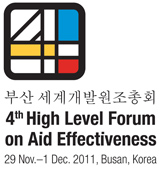The statistics are put into social, economic and environmental domains to best display whether progress or regress is being made as a whole and allows for each domain to be considered side by side.
Given the explosion of interest in international and domestic activity occurring in measuring progress, the ABS considered it was timely to review whether MAP is still measuring the aspects of life that matter most to Australians. To do this, the ABS has undertaken the largest, broad-ranging consultation in the agency's history. In a nut shell, for the last two years the MAP Consultation has been asking Australians, 'What is important to you for your nation's progress?'
On November 20, 2012 ‘Measures of Australia’s Progress - aspirations for our nation: a conversation with Australians about progress’ was released. This report provides a full and transparent account of the aspirations that Australians told us were important to them for progress.
What Australians want
From what people told us, we found that ideas of what progress is have changed since we first set out to measure it in 2002. We also found that there is a gap in the current picture of progress, particularly in the areas of the built environment and other aspects that enrich people's lives. Many people strongly endorsed the area of Governance as a fourth MAP domain, which echoes the international trend to give greater focus to measuring progress in things such as human rights and having a political voice. People also wanted more statistics to be broken down by population groups and geographic areas.
The people we spoke to provided many new and interesting aspirations for Australia's progress. Many Australians feel that having equal opportunity or a fair go is an essential element for progress, as are other aspects that enrich people's lives such as recreation, sport, popular culture and the arts. The consultation also revealed that Australians think that having a say in the decision making that affects their lives, and having institutions that are accountable for their decisions, are crucial for progress.
This word cloud
represents the range of ideas expressed during the MAP consultation. The size of the words
represent how often they were raised.
So, where to next?
We will be using the aspirations from the consultation to refresh the existing MAP indicators and release a new version of MAP in late 2013. We are also planning on giving the 2013 release a brand new look, ensuring it's easy to use and retaining MAP's 'at a glance' view of national progress. We also want to clearly communicate the stories behind the statistics, and allow users to directly access data they are interested in. Take a look at the mock-ups on BetaWorks and let us know if you like the new layout and functionality.
We'll also plan to include infographics and videos in MAP 2013, so you can easily get the top progress stories fast! Check out our example demo video to find out more!
Hannah Wetzler
Social Analyst
Social and Progress Reporting | Population Labour and Social Statistics | Australian Bureau of Statistics



